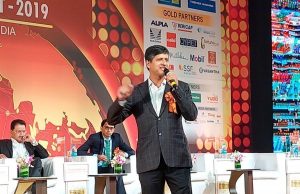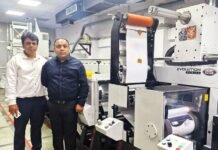Hindustan Unilever, as part of the Unilever Group, is working with various partners to address the issue of sustainability and plastic waste, Pradeep Banerjee, executive director – Supply Chain, Hindustan Unilever said during the 7th Injection, Blow, Roto & PET Moulding International Summit 2019 that was held in Mumbai.
“The issue of plastic waste is everybody’s problem and we have to work as a value chain. All stakeholders need to take part in coming up with the solutions. Plastic really is not the problem; how we deal with it is,” he said.
Outlining Hindustan Unilever’s focus area for sustainability, Banerjee said that the main areas to address are water, health, livelihood, sustainable sourcing and reducing plastic waste. He informed the audience that Unilever has committed that by 2025, all of its packaging will be reusable or compositable. The FMCG major has also committed that by 2025, 25% of its plastic packaging will come from recycled plastic content. The company is working on eliminating problematic or unnecessary plastic packaging by working on light-weighting.

To drive circularity, industry stakeholders need to educate consumers about segregation. They also need to enable circularity by building collection infrastructure and national EPR framework. The recycling and recovery infrastructure also need to be expanded, he said. Venkatesh Kini, co-founder of Ubuntoo also spoke about plastics and sustainability in the same session. Kini, who was with Coca-Cola India for close to two decades, started Ubuntoo to offer solutions to tackle plastic pollution.
He began by echoing Banerjee’s sentiment that plastics per se are not the problem. “Plastics are not evil. They are an amazing invention. Imagine if all the things that are now being packed in plastic were to be packed in say wood, metal or glass, the environmental impact would have been much worse because of the carbon footprint of these materials,” he said.
He further added that in this age of social media, plastics are facing a perception problem where images of oceans full of plastic or reports of animals choking of plastic waste creates a huge and immediate impact on consumers. “This is a problem of plastic pollution and not plastic. The industry needs to put the correct facts out there,” he argued.
Kini prescribed that collaboration is the name of the game where governments, industries, innovators, NGOs, influencers, investors, entrepreneurs and exporters should come together to find a solution. Citing the example of American type of industry, which was facing similar waste disposal problems, he said that the industry was able to create a circular economy because of coming together of all these entities.
“The plastic industry can learn from other industries and can find a solution. For example, in India the PET industry has been able to create a circular economy. I am sure with a little bit of effort similar success can be achieved for other forms of plastic waste,” he said.











